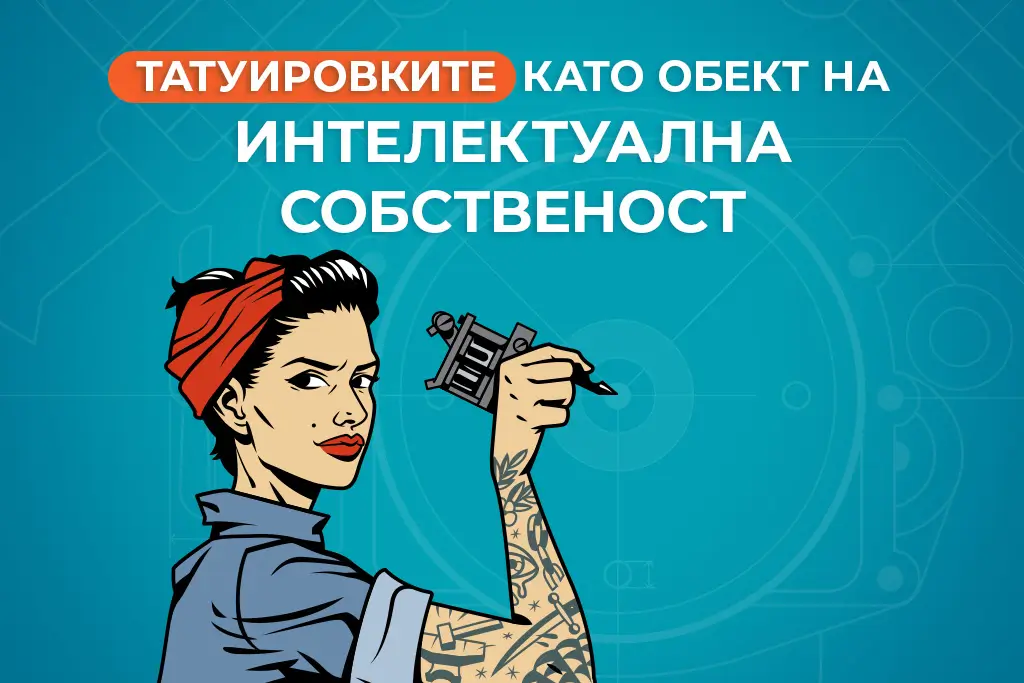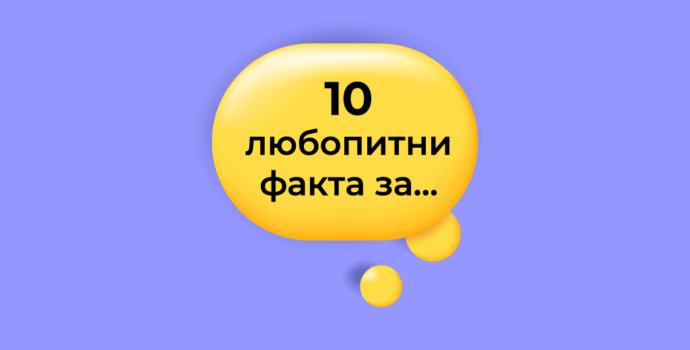Tattoos are a deeply personal choice, a form of expression, an original way to honor an important event or person, a sign of belonging to a certain culture, and often a spontaneous idea that we later have to get used to. What's more, tattoos are not a "fashion" at all, but an ancient art that has been part of human history for thousands of years and is here to stay. But can tattoos be protected by copyright? The short answer is: yes, but there are also many rules, nuances, and exceptions, and in this article we will look at some of them. If you want to open your own studio or are about to get a controversial tattoo, we advise you to seek an opinion in advance by professionals, to save yourself future headaches.
Tattoos and the European Union
Copyright on tattoos varies considerably across jurisdictions and geographies. In the United States, for example, courts are increasingly recognizing tattoos as copyrightable works, provided they are original and fixed on a medium – even when it involves human skin.
This means that a tattoo can be viewed in the same way as a painting or graphic design – with an author who owns the exclusive rights to its use. Accordingly, any reproduction of the tattoo without the author’s consent, for example in advertisements, video games or films, can represent copyright infringement.
One of the most famous precedents in this regard is the case of Mike Tyson's facial tattoo, reproduced in the film "The Last Bachelor Party 2", which ended in an out-of-court settlement.
There is no regulation specifically dedicated to tattoos in the European Union. They fall under the general framework of copyright, which is applied at national level, according to the principles of the Berne Convention. This means that legal protection depends on local law, the main requirement being the originality of the work. The European Intellectual Property Office (EUIPO) recognises that tattoos can be protected, although with some ambiguity as to the level of such protection. This ambiguity stems from the fact that tattoos are not explicitly regulated as a separate category in European law, which leaves the interpretation and application of the rules to national jurisdictions.
Getting a logo tattooed is an expensive idea
Tattooing someone else's logo is not just an artistic act - it can also have serious legal consequences. From the tattoo artist's perspective, depicting a registered trademark or protected copyright work without explicit permission carries the risk of intellectual property infringement. Even when the client insists, the responsibility for reproducing the protected content may fall on the artist. The artist is not just tattooing, but creating a visual copy of a protected sign, which in a legal sense can be used without a license.
On the client’s side, the decision to get a famous brand tattooed, be it the logo of a favorite sports team, car, or company, is also not entirely harmless. While the likelihood of legal action for personal use is small, it is not ruled out – especially if the image is subsequently used in public content, such as in advertising, video, or social media. In such cases, the rights holder may file claims for unauthorized use of the brand.
Therefore, before tattooing a logo, whether at the request of the client or at the initiative of the tattoo artist, it is important to assess whether its use is legal. In most cases, such a tattoo requires permission from the copyright holder, especially if it is to be used for commercial purposes.
Tattoos with celebrities
We all remember the days when Pamela Anderson and Kurt Cobain could often be seen on the shoulders or chests of their many fans around the world. But are such tattoos legal? The answer is once again unclear and subject to interpretation.
If a tattoo artist uses the image of a famous person for their own projects, they inevitably enter the territory of the so-called "right to self-image". This right gives celebrities control over the commercial use of their identity - including their face, name and image. In most EU countries and the US, this type of right is protected by law, meaning that the tattoo artist or client could theoretically be held liable if the tattoo is used for commercial purposes (e.g. advertising, merchandise or public content).
- In the USA, the right to one's own image often outlives the person - up to 70 years after death (e.g. Elvis, Marlon Brando).
- In the EU, the rules differ - in France, for example, the use of the image of a public figure without a commercial purpose is usually permissible.
In 2013, the company that manages the rights to Marilyn Monroe's image sued her for unauthorized commercial use of her likeness, including tattoos printed on merchandise. The ongoing legal battles underscore the importance of clear contracts and licensing when it comes to the commercial use of celebrities' likenesses.
Tattoos with artwork
Tattooing existing works of art (paintings, illustrations, photographs, sculptures, or comics) falls under copyright rules. If the original is protected (e.g., Van Gogh's "Starry Night" or an illustration by a contemporary artist), the tattoo artist technically must obtain permission from the copyright holder. The exception is works in the public domain, e.g., a classical sculpture or a Renaissance icon.
Also, it is important to distinguish between inspiration and direct copying. Inspiration means using ideas, style, or elements from a work, but with sufficient creative input and originality on the part of the tattoo artist. Direct copying involves reproducing an existing image with little or no change, which can infringe copyright.
An interesting example of such a case is the case of the American tattoo artist and owner of a cosmetics brand Kat Von D. In 2017, she used a famous photograph of jazz musician Miles Davis as the basis for a tattoo on her client. A full 4 years later, the photographer Jeffrey Sedlik - the copyright holder - filed a lawsuit claiming that the tattoo copied a significant part of the original image. The photograph itself was taken back in 1989.
Von D defended her work as an artistic interpretation made without commercial intent, as she did not ask for money for this particular project. After a lengthy review, the court ruled that the tattoo was not close enough to the original to constitute infringement, and that posting it on social media fell within the scope of fair use. The case raises important questions about the boundaries between inspiration, transformation, and copyright.
Custom tattoos – how to protect your rights
Any original tattoo design can be subject to copyright, even when applied to human skin. In Bulgaria and the European Union, such works are automatically protected from the moment of their creation, as long as they are the result of creative activity and carry an element of originality. However, the implementation of such protection in practice requires clear actions on the part of the artist.
- Archive original sketches and digital files with date and description to have proof of your authorship.
- Keep written contracts with clients that explicitly state that the copyright on the design remains your property.
- Specify in advance whether the client has the right to use the image in a public or commercial form (e.g. t-shirts, social networks).
- If you want additional security, register the design with a notary or in a digital registry with a time stamp.
- Monitor online and offline spaces for copying your designs and, if necessary, consult a lawyer for actions under the Copyright and Related Rights Act (CRA).
And if you want your rights to be protected to the maximum - trust the the experts from IPfabrika! We will make sure the entire process goes smoothly, quickly and without any hiccups, so you can stay focused on your creativity.
Tattoos with quotes - words are power
Quoting popular phrases or entire excerpts from works in tattoos may seem harmless, but it can raise legal issues if the text is subject to copyright. In the EU and Bulgaria, short phrases are usually not protected unless they are sufficiently original and recognizable - for example, a literary quote, a song lyric or a line from a film (such as “Are you talking to me?” from “Taxi Driver”). Quotes from authors who died more than 70 years ago (e.g. Shakespeare) are in the public domain and can be used freely. However, excerpts from contemporary books, screenplays or songs often require permission, especially if the tattoo is used in a public or commercial setting.
It is important that the artist is aware of the origin of the text, and the client is aware of the potential risk.
A safe option is to use publicly available quotes or create original wording. While lawsuits for such tattoos are rare, the lack of a clear legal framework does not mean there is no risk.
A matter of good legal protection
Let's end the article with an interesting case that clearly illustrates that tattoos can be subject to copyright and their unauthorized use can cause problems... Unless you have very good lawyers.
The company Solid Oak Sketches owns the licenses for several tattoos of famous NBA basketball players, including LeBron James, Kobe Bryant, and others. These tattoos are real and made by various tattoo artists, but the rights to reproduce them belong to Solid Oak.
In February 2016, the company filed a lawsuit against Take-Two Interactive, the makers of the video game NBA 2K, for using digital images of athletes along with their tattoos. The lawsuit claims that this is a copyright infringement because these tattoos are protected images.
A lawsuit was filed, and in 2020, a federal court in New York ruled in favor of Take-Two. The conclusion was that the tattoos were only a small part of the game's visual appeal, their use was transformative, and players expected realistic depictions of athletes, including their tattoos.





